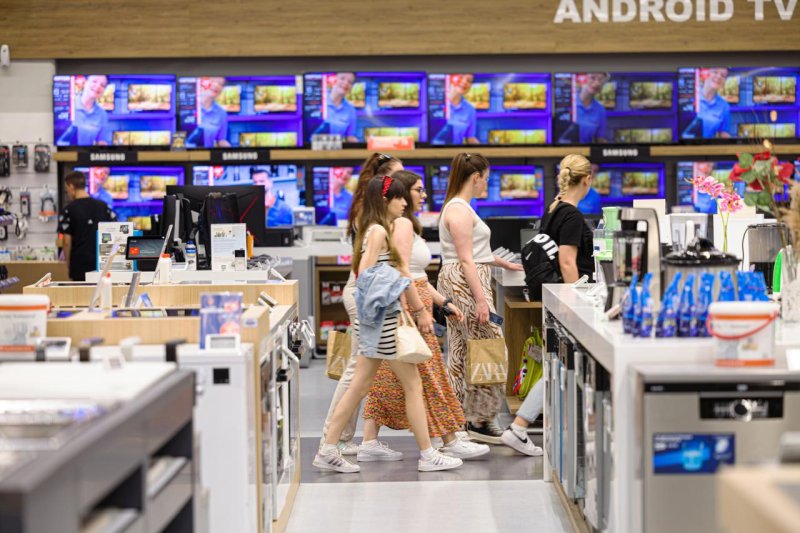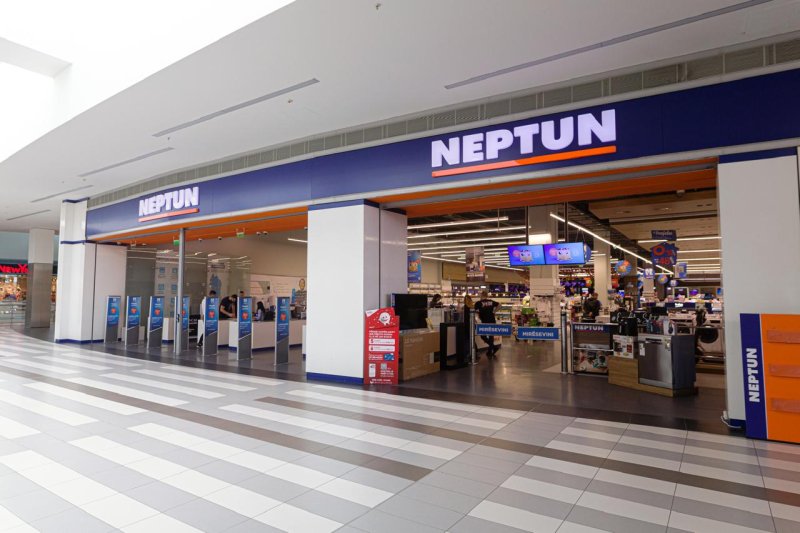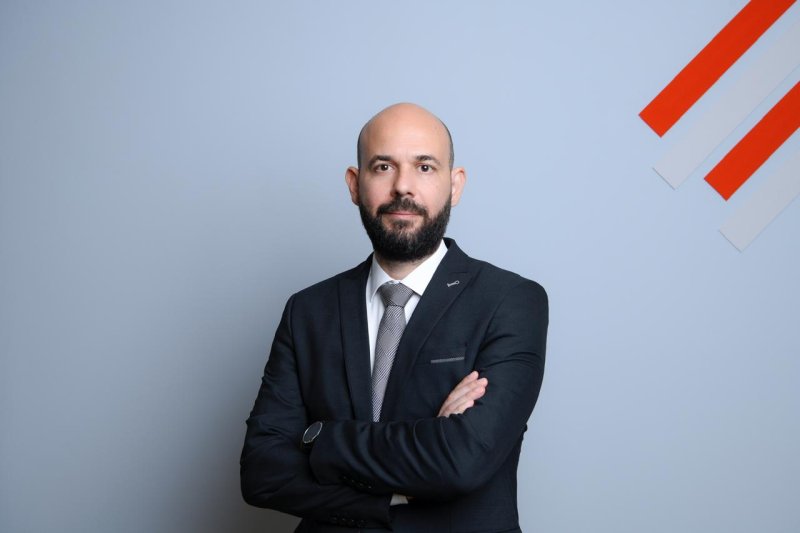Three Decades of Regional Success: Neptun’s Strategic Vision for Expansion and Advanced Technology
For 30 years, Neptun has been recognised as a leading retailer of reliable, high-quality household appliances. With an expansion strategy that extends beyond Albania, Bosnia and Hercegovina, Kosovo, and North Macedonia, and a commitment to embracing the latest technology, Neptun continues to grow. CEO Alexandros Kosenas discusses the challenges faced, the concrete achievements to date, and the company’s plans for the future.
1.What were the key trends in the trade of electronic products 2024?
In 2024, several key trends shaped the trade of electronic products. The TV business saw significant growth, driven by the excitement around the Euro 2024 football event, as consumers upgraded to larger screens and higher-quality models. High-end personal care devices also experienced increase in demand, as more customers prioritized self-care and premium products. Additionally, the air conditioning segment saw a huge increase, largely due to environmental changes and the growing need for climate control solutions. There has also been a noticeable shift toward A-brands, with consumers opting for trusted, high-quality brands. Finally, e-commerce continued its rapid rise, with more customers choosing the convenience of online shopping for electronics.


2. How does informality impact the market? Which product categories are most affected, and how does this compare with other regional markets?
Informality poses significant challenges to the market, impacting not only businesses but also consumers and the government. For businesses, it discourages serious investments, as operating in a market with high levels of informality makes it difficult to compete fairly. Consumers, on the other hand, often become victims, purchasing products of questionable quality without proper warranty or after-sales support. This is especially problematic in product categories like mobile phones and small, high-value devices, where informality is particularly high in Albania. The government, too, suffers from reduced tax revenues, which impacts overall economic growth. Compared to other regional markets, Albania’s mobile phone sector is unfortunately dominated by informal channels, making it a critical area of concern and every serious retail company is expecting a practical solution on this matter.
3. What do you see as the future of retail market, and how is Neptun positioning itself to adapt?
Retail trade is in constant evolution, driven by rapid digital transformation. It is obvious that consumer expectations will continue to rise, so businesses must focus on improving the overall customer experience, making it more tailored to individual needs. To meet these demands, companies need to prioritize customer-centric strategies, invest in workforce development and create a culture of innovation. At Neptun, we’re placing a strong emphasis on that direction, we believe that those who can deliver these experiences seamlessly will lead the industry in the future.
As technology, particularly AI, becomes more integrated into every aspect of retail—from inventory management to customer service—retailers will have new tools to create more meaningful and efficient interactions. AI will allow us to better understand consumer behavior and of course optimize operations.
Another thing is the role of omnichannel strategies will be critical in this evolution since retail in every industry moves on that direction. Consumers are no longer bound by a single channel; they expect a fluid experience. Companies that can provide a truly integrated and consistent omnichannel experience will be the ones to stay ahead. On that direction, one of the most important projects of the upcoming year for Neptun lies on improving our curent omnichannel readiness.
However, one of the biggest challenges for the industry remains the supply chain and its interuptions due to external geopolitic factors. This part is usually unpredictable, it is expected to affect business operations and requires a proactive aproach from businesses.
4. In your opinion, should there be more emphasis on online shopping?
Absolutely, there should be more emphasis on online shopping, particularly in our industry. The growth of e-commerce is undeniable, with consumers increasingly expecting the convenience of shopping from anywhere at any time. This trend is visible across all sectors, including ours. As a leader in this space in our region, we’ve observed a strong shift in customer behavior, with more people opting for online purchases.
However, while e-commerce is important, I believe the real opportunity lies in creating a seamless omnichannel experience. Today, it’s not just about having an online presence; it's about ensuring that consumers can effortlessly switch between sales channels. Customers simply expect convenience, speed, and quality service, whether they’re on our website or walking into one of our stores. Therefore, each touchpoint should provide a consistent and integrated experience. As i mentioned above, our focus is on building this kind of integrated system that offers a homogeneous, uninterrupted shopping journey across all platforms.
5. How is the rapid development of buildings and hotels influencing the market?
The increase of real estate activity in Albania has a significant impact on various industries, including ours. This growth acts as a parachute to some but also creating opportunities for companies to meet the rising demand for consumer electronics, home appliances, and other essentials that modern developments require. As long as this trend continues, businesses need to be prepared to capitalize on it by offering tailored solutions and superior service. More importantly, it's an opportunity to build strong, long-term relationships with end consumers, establishing trust and reliability, which will be key to sustaining growth in a competitive market.
6. INSTAT has reported a decline in Albania's population, with projections indicating further decreases. How does this demographic trend impact the trade and future of the electrical appliances market?
The decline in Albania’s population, as highlighted by INSTAT, poses a significant challenge to the electrical appliances market, as fewer people translate to a reduced long-term demand for household products. Therefore depopulation may also slow market growth.However, personally I remain confident because at this moment, this concern is partly offset by two key factors: the growth of Albania’s economy and the increase in tourism. While depopulation is a concern, these factors provide a critical balancing effect, ensuring continued growth opportunities in key market segments. Of course ,If the trend continues, it could eventually create substantial growth challenges for businesses.
7. What are Neptuns plans for the future?
In one sentense, Neptun is focusing in growth in the coming years. Building on our successful presence across Albania, North Macedonia and Kosovo, where we’ve established ourselves as a trustworthy and reliable brand, we are ready to expand further. In October 2024, we will be opening a new store in Sarajevo, Bosnia, marking our entry into this promising market with a flagship location of 1000 square meters in the city center. This expansion is part of our broader strategy to extend the Neptun brand regionally.
Additionally, our franchise concept, NOVA Electronics, which has been a success with 20 stores in Albania, will soon be launched in Kosovo. We’re confident that NOVA will replicate its success in the Kosovo market, building on the strong foundation we’ve developed in Albania. With three decades of successful regional operations, Neptun is now well-positioned to continue its expansion and increase its presence in the broader region which is part of our group growth strategy.













